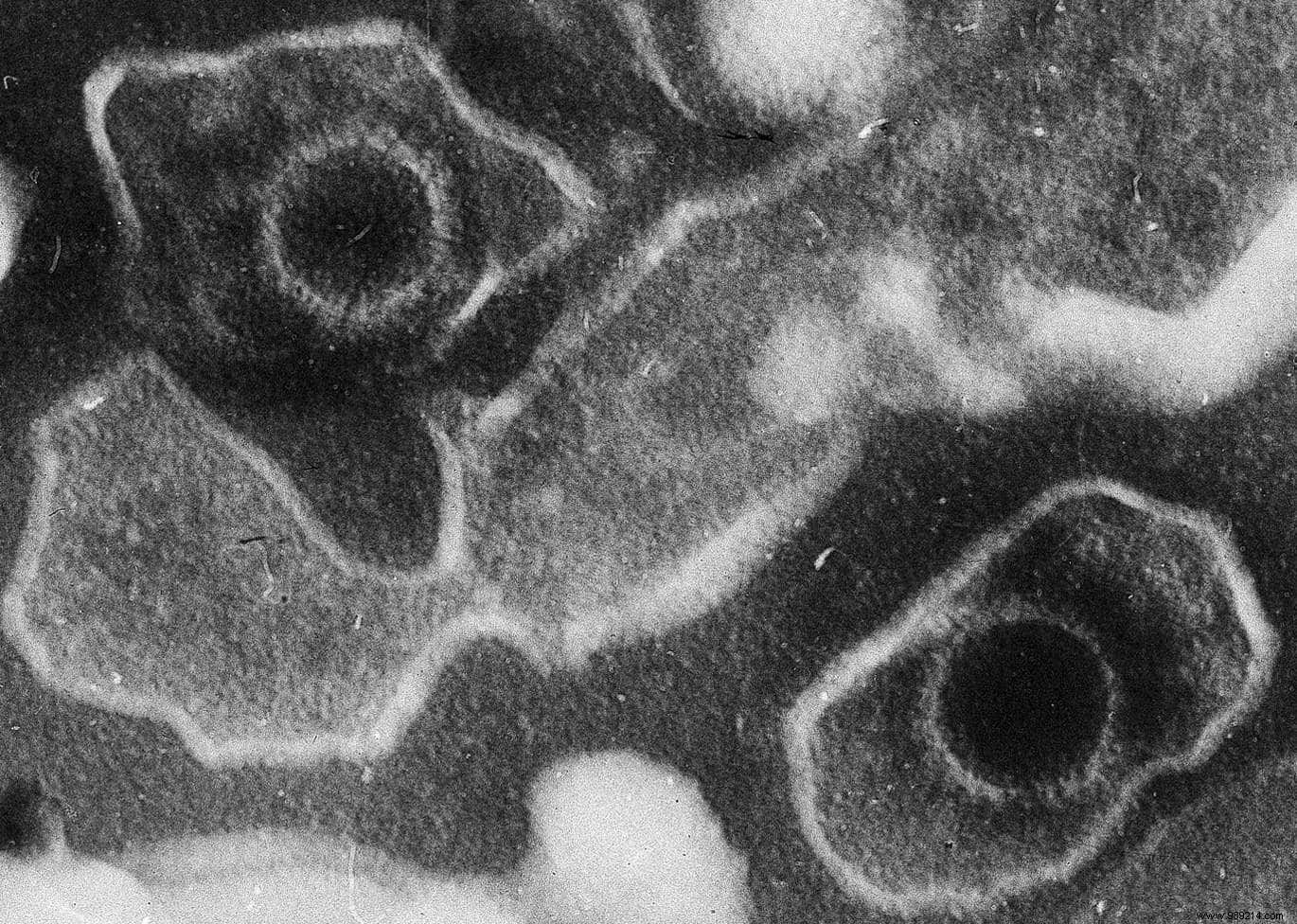A new study confirms the link between the Epstein-Barr virus (EBV) and the development of multiple sclerosis. According to this work, EBV is not only linked to MS:it is indeed an essential trigger of the neurological disease.
Multiple sclerosis (MS) is an autoimmune disease that attacks the nervous system. Myelin, a sheath covering the nerve fibers of the brain and spinal cord, is then damaged, which has the effect of slowing down or preventing electrical signals from reaching several parts of the body. About 2.3 million people are affected worldwide.
Previous studies have already established a place with multiple sclerosis and the Epstein-Barr virus (EBV). This herpes virus, which affects more than 90% of people worldwide before the age of twenty, is the one that causes infectious mononucleosis (the famous "mono" or kissing disease). It is still unclear exactly how this virus can trigger MS, or why MS develops in a tiny fraction of people when EBV is very common. Nevertheless, the link between these two conditions is only growing stronger, evidenced by new work recently published in the journal Science.
For this research, a team led by Dr. Kjetil Bjornevik, from Harvard University, relied on blood serum samples taken from more than ten million servicemen in service between 1993 and 2013 . These samples had been taken regularly as part of conventional screening for infections, such as HIV.
In the cohort, 801 people had developed multiple sclerosis. These patients had provided up to three serum samples before their diagnosis, allowing researchers to examine their composition before they developed the disease. The team also compared these samples from these 801 people with those from 1,566 members of the cohort who had not developed MS.
At the start of the study period, only 35 of the 801 people later affected by MS had tested negative for EBV. At the end of the period, 34 of these 35 had finally developed anti-EBV antibodies before their diagnosis (seroconversion).
The researchers then compared data from these 35 people who initially tested negative for EBV with 107 members of the control group who had also initially tested negative. They found that the seroconversion rate in the 35 people who would later develop MS was significantly higher than the rate in the control group (97% versus only 57%).
Based on this data, the researchers calculated that seroconverted people had a 32 times higher risk of developing MS .

It is still unknown why a single MS patient does not appear to have developed anti-EBV antibodies. This could be due to sampling deficiencies, the person being misdiagnosed with MS, or being infected with EBV but not seroconverting to a any reason. It is also possible that the person has a rare type of MS triggered by something other than EBV.
It's also worth noting that researchers aren't just focused on EBV antibodies. They have indeed targeted more than 200 viruses. However, the risk of MS only increased after EBV infection .
The team is also considering how EBV might trigger MS. One hypothesis suggests that components of EBV, in particular EBV nuclear antigenic proteins, can mimic parts of myelin proteins and other central nervous system proteins. This process could prompt the immune system to create cross-reacting antibodies that attack the virus and the body, causing damage over time.
Finally, let's point out that while this news highlights a clear link between EBV and MS, this virus is clearly not the only factor . We know that vitamin D deficiency, smoking, obesity and UVB exposure can also play a role.